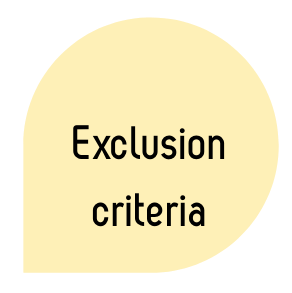EDIT Collaboration
The EDIT Collaboration has brought together clinicians, researchers and individuals with lived experience from around the world to improve treatment for people affected by high weight and eating disorders. Weight management interventions are usually extensive and complex, encompassing multiple lifestyle behaviours, and using a range of different strategies. Currently, there is a lack of evidence synthesis regarding components of weight management interventions which may increase or decrease the risk of eating disorders, and individual characteristics that may impact on someone’s risk of an eating disorder during and after weight management. This study aims to address these gaps in knowledge.
-
Aim 1
To identify individual characteristics of adolescents and adults with high weight that are associated with increased eating disorder risk during and after behavioural weight management
-
Aim 2
To deconstruct behavioural weight management interventions into their delivery features and strategies to determine if specific components increase or decrease eating disorder risk
-
Aim 3
To develop predictive models using individual characteristics and intervention components that determine risk of eating disorders during behavioural weight management
-
Aim 4
To develop resources and recommendations informed by data, stakeholders and consumers to reduce eating disorder development during behavioural weight management
No individual trial alone can answer these questions; hence we have established the EDIT Collaboration to bring together planned, ongoing and completed trials from around the world.
Innovative methods
Consultation
Through consultation, we identified individual participant characteristics and intervention strategies which may have contributed to an increase or decrease in eating disorder risk during weight management interventions, to be included in analysis. (completed in 2023 - Consultation Study)
Individual participant data meta-analyses
Individual participant data (IPD) meta-analysis is the gold standard for combining trial data, providing greater power for estimation of treatment effects of rarer outcomes. It also enables reliable subgroup analyses. IPD will be used to identify individual predictors of eating disorder risk during weight management.
Intervention deconstruction
Interventions were deconstructed into their components, including delivery features and intervention strategies. (Pilot completed in 2023 - Pilot Study)
Predictive modelling
Data will be combined from IPD meta-analyses and intervention deconstruction to identify any interactions between individual characteristics and intervention strategies which may increase or decrease risk of eating disorders during weight management.
Eligibility criteria for included trials
Inclusion criteria
Randomised-controlled trials and protocols of RCTs
Intervention aiming to reduce weight-related outcome OR improve cardiometabolic risk
Intervention delivered to adolescents or adults with overweight, obesity or severe obesity
Measurement of at least one eating disorder risk factor pre-intervention and post-intervention or follow-up using a validated assessment tool including eating disorder diagnosis (based on a diagnostic interview or clinician assessment), global eating disorder risk score, binge eating score or identified engagement in binge eating, loss of control eating and/ or bulimic symptoms/ compensatory behaviours
Exclusion criteria
Interventions including bariatric surgery and post-surgical interventions
Pharmacotherapy and dietary supplement interventions (meal replacements included)
Interventions targeted at the prevention of overweight
Interventions treating secondary or syndromic causes of obesity
Interventions treating an alternate medical condition (e.g. depression, diabetes, NAFLD, sleep apnoea, cancer) in a sample with overweight or obesity
Interventions treating eating disorders or conducted in people with an eating disorder
Do you have a trial that fits our eligibility criteria and are interested joining our Collaboration? CONTACT US
EDIT Study Team
-

Dr Hiba Jebeile
Dr Hiba Jebeile is Co-lead and Program Manager of the EDIT Collaboration. She is a NHMRC Emerging Leadership Fellow at the University of Sydney, Children’s Hospital Westmead Clinical School and an Accredited Practising Dietitian. Hiba leads the Individual Participant Data meta-analysis stream of the EDIT Collaboration including overseeing the identification of eligible trials, data sharing, the receipt and processing of data, analysis and translation of outcomes into practice.
-

Dr Natalie Lister
Dr Natalie Lister is Co-lead and Principal Investigator of the EDIT Collaboration. She is a Senior Research Fellow at the University of Sydney, Australia. Natalie leads the Intervention Coding stream of the EDIT Collaboration. Intervention coding deconstructs programs by breaking them into core components - delivery features and intervention strategies - to better understand how and why they work. Her research aims to improve intervention design through greater clarity and precision.
-

Prof Anna Lene Seidler
Prof Anna Lene Seidler is the methods lead of the EDIT Collaboration. She is professor at the University Medical Center Rostock, where she holds the chair for Health Equity in Child Health as part of the German Center for Child and Adolescent Health (Rostock/Greifswald site). She is an Honorary Affiliate at the University of Sydney, Honorary Principle Research Fellow at University College London, UK, and Co-Convenor of the Cochrane Prospective Meta-Analysis Methods Group. She develops methods in innovative evidence synthesis and leads large international research consortia applying these methods, such as the iCOMP collaboration and the TOPCHILD collaboration.
-

Dr Brittany Johnson
Dr Brittany Johnson will oversee the intervention deconstruction stream of the EDIT Collaboration. She is a Senior Research Fellow in the Caring Futures Institute, at Flinders University, Adelaide, Australia. Her research interests include improving children’s diet quality by reducing unhealthy food intake, applying behaviour change theory and creating supportive environments where we live, work and play. She has extensive skills in the Behaviour Change Wheel including Behaviour Change Techniques, through training by the University College London Centre for Behaviour Change, which she has applied in projects related to children’s vegetable and unhealthy food intake, and early obesity prevention interventions.
-

Dr Sol Libesman
Sol completed a PhD on perception at the UNSW School of Psychology. Here he developed a keen interest in building statistical models. For the last two years he has specialized in the development of meta-analyses and meta-science in the NextGen Evidence Integration team in the NHMRC Clinical Trial Centre. In 2022 Sol joined the EDIT team contributing expertise in statistical modelling and IPD meta-analyses.
-

Hannah Melville
Hannah (she/her) is an Accredited Practicing Dietitian (APD) and PhD candidate at the University of Sydney. Prior to her Master of Nutrition and Dietetics, she completed a Bachelor of Medical Science at the University of New South Wales, and a Bachelor of Business at Bond University. Hannah had worked clinically in private practice in weight management, eating disorders and cardiovascular health, as well as in outpatient heart failure. Her PhD focusses on understanding the prevalence of eating disorders and disordered eating in obesity treatment settings.
-

Rabia Khalid
Rabia Khalid is an Accredited Practising Dietitian (APD) and PhD candidate at the University of Sydney. Her background as a primary healthcare dietitian and researcher in chronic kidney disease has fuelled her interest in supporting people with obesity and disordered eating. Her PhD research explores treatment features that are both effective and aligned with the preferences of people seeking weight management support.
-

Ruth Tredinnick
Ruth Tredinnick is the Research Administration Officer of the EDIT Collaboration. She has 10 years administration experience in Higher Education, within Engineering and IT, Innovation and Entrepreneurship, and Enterprise Learning. Ruth provides administrative support to the EDIT Study Team and triallists.
-
Dr Kylie Hunter
Dr Kylie Hunter is a Research Fellow and co-lead of the NextGen Evidence Synthesis team at the NHMRC Clinical Trials Centre, University of Sydney. Her research focuses on advancing evidence synthesis methods to address high-priority health research questions, with particular expertise in individual participant data, prospective meta-analysis, research integrity, and child health. Within the EDIT Collaboration, she contributes methodological advice.
-

Isabelle Jardine
Isabelle Jardine is an Accredited Practising Dietitian (APD) and a Project Officer for the EDIT Collaboration at the University of Sydney. She holds a Bachelor of Nutrition and Dietetics (Honours) from the University of Wollongong. Isabelle is passionate about mental health, with particular focus on eating disorders in weight-related therapies. Her work is driven by a commitment to advancing knowledge in this field, which she also brings to her role as a private practice dietitian.
-

Sasha Lorien
Sasha Lorien is a Project Officer for the EDIT Collaboration at the University of Sydney. She has completed a Bachelor of Science (Physiology), Bachelor of Nutrition and Dietetics (Honours), and Master of Public Health. She has experience in the implementation and evaluation of chronic disease prevention programs, including child and adolescent health promotion services and research trials.
Scientific Advisory Panel
-

Professor Louise Baur
Professor Louise Baur holds the Chair of Child and Adolescent Health at the University of Sydney and is a senior paediatrician in Weight Management Services at The Children’s Hospital at Westmead in Sydney. She is Past-President of the World Obesity Federation (2022-2024) and is President of the Australian Academy of Health & Medical Sciences (2023-2026). She has long-standing research and practice interests in the clinical treatment of children and adolescents with obesity and insulin resistance, and in the prevention of obesity, especially in early childhood.
-

Em Professor Susan Paxton
Susan Paxton is Emeritus Professor in the School of Psychology and Public Health, La Trobe University. Her research focuses on understanding risk factors for body image and eating problems. She is a past President of the Academy for Eating Disorders and was a Director of the Butterfly Foundation from 2009-2021.
-

Professor Amy Ahern
Professor Amy Ahern is a Research Professor and Programme Leader in the Institute of Metabolic Sciences at the University of Cambridge. Amy is a psychologist and a behavioural scientist who leads research developing and evaluating interventions to prevent and treat obesity, diabetes and related metabolic disorders. She has a specific focus on elucidating a better understanding of the biopsychosocial determinants of obesity and eating behaviour and translating this into scalable, cost-effective interventions that can achieve sustained improvements in physical and mental health.
-

Associate Professor Sarah Garnett
Sarah Garnett is an A/Professor, Sydney Medical School, University of Sydney. She has extensive expertise in obesity research including designing, implementing and leading multi-disciplinary and multi-site epidemiological studies and clinical trials. She is the past Chair of the Sydney Children’s Hospital Network Human Research Ethics Committee.
-

Professor Denise Wilfley
Dr. Denise Wilfley, Scott Rudolph University Professor and Director of the Center for Healthy Weight and Wellness at Washington University School of Medicine. She is an internationally-recognized expert on the etiology, prevention, and treatment of eating and weight-related disorders in children, adolescents, and adults.
-

Professor Kate Steinbeck
Professor Kate Steinbeck is an endocrinologist and adolescent physician, and Professor and Medical Foundation Chair in Adolescent Medicine at the University of Sydney. She is a senior consultant in the Department of Adolescent Medicine, The Sydney Children’s Hospital Network, and Director of the NHMRC Centre of Research Excellence in Adolescent Health: Wellbeing, Health & Youth. Kate’s research includes the effects of puberty hormones on adolescent wellbeing, mood and behaviour, access to health care youth with a focus on marginalised and vulnerable groups, the complications and management of adolescent and young adult obesity, the long term endocrine effects of childhood cancer therapy, and research methodologies in adolescents especially in the use of digital technology in research and health care.
-

Dr Sarah Maguire
Prof Sarah Maguire OAM (BScPsych Hons, MA, DCP, PhD) is a clinical psychologist, researcher, educator, policy and practice advisor to government and Director of InsideOut Institute where she leads a research and clinical team with a broad research and service change agenda, including biological, health systems, clinical intervention and translational research.
-

Professor Amanda Salis
With a Bachelor of Science (with First Class Honours) from the University of Western Australia and a PhD from the University of Geneva, Switzerland, Professor Amanda Salis (nee Sainsbury) leads a research team at the University of Western Australia's School of Human Sciences that aims to help people to attain and maintain an optimum body weight and composition. Adept in translating novel research findings into human benefits, Amanda's research into hypothalamic control of energy homeostasis spans studies with conditional transgenic mice to randomized controlled clinical trials in humans.
-

Dr Dasha Nicholls
Dasha Nicholls is Professor of Child & Adolescent Psychiatry at Imperial College London and National Specialist Advisor on Eating Disorders to NHS England. Before joining Imperial in 2018, she was Joint Head of the Feeding and Eating Disorders service at Great Ormond Street Hospital and Honorary Senior Lecturer at the UCL Institute of Child Health. She is Past President of the Academy of Eating Disorders and Past Chair of the Eating Disorders Faculty of the Royal College of Psychiatrists. Her research focuses on prevention and early intervention for young people’s mental health, including those with feeding and eating disorders and living at higher weight.
-

Professor Andrew Hill
Professor Andrew Hill is a Chartered Psychologist and Professor of Medical Psychology at Leeds University School of Medicine, where he is Director of Student Progression. He combines a career in the education of undergraduate and postgraduate medical students with research in obesity, eating disorders, and appetite control.
-
Professor Caroline Braet
Professor Caroline Braet is currently associated with Ghent University for 10%. She was for more than 10 years the head of the Department of Developmental, Personality, and Social Psychology at Ghent University in Belgium. Her research focuses on externalizing and internalizing problems in children and adolescents, obesity and eating disorders, the underlying psychological mechanisms as well as the implications for diagnostic issues and intervention, with specific focus on transdiagnostic processes (information processing, family processes and emotion regulation). The research is embedded in models on the development of psychopathology (behavioral cognitive theory, affect regulation theory).
-

Associate Professor Milan Piya
A/Prof Milan Piya is a clinical academic endocrinologist at Western Sydney University, and Head of Department of the Macarthur Diabetes Endocrinology and Metabolism Service at Campbelltown and Camden Hospitals in South Western Sydney Local Health District. He is Vice President of the Australian and New Zealand Obesity Society (ANZOS), and academic lead for the Macarthur Clinical Obesity Research Program (MCORP). He has a clinical and research interest in Type 2 diabetes, obesity and eating disorders, particularly in the context of severe obesity.
Stakeholder Advisory Panel
-

Kelly Cooper
Kelly Cooper is an Accredited Practising Dietitian and health advocate focused on reducing weight stigma and promoting client-centred care. In her private practice, she supports people living with higher weight who have experienced stigma and eating disorders. She is the former manager of the Obesity Collective, Australia’s peak health body for obesity. She represents the Weight Issues Network on the EDIT Collaboration. Kelly shares her own lived experience of weight stigma and eating disorders at public forums to challenge bias and advance compassionate, evidence-based approaches in healthcare.
-

Dr Faith Anne Heeren
Dr. Faith Anne Heeren is a postdoctoral researcher at Wake Forest University's School of Medicine. At the age of 16 she underwent gastric bypass, which sparked her involvement in obesity research and patient advocacy. She is also the founder of OCEANS, a 501c3 nonprofit for adolescents living with obesity.
-

Genevieve Dammery
Genevieve Dammery is a researcher and lived experience mentor and advocate for eating disorders. She holds a Bsc (Hons) from the University of Sydney and an M.Phil in Population Health Sciences from the University of Cambridge. Genevieve currently resides in London and splits her time between research and industry work. Previously she has been involved as a member of the National Eating Disorder Research & Translation Strategy lived experience and expert group.
-

Ted Kyle
Ted Kyle is a pharmacist and health innovator living in Pittsburgh. He's also a tireless advocate for people living with obesity. His widely-read daily commentary, published at http://conscienhealth.org/news, reaches an audience of more than 15,000 thought leaders in health and obesity.
-

Dr Jackie Yourell
Dr. Jackie Yourell is a research scientist with over ten years of experience in behavioral science research. She earned her PhD in Youth Development and Family Sciences from the University of Florida, where she studied parent-child communication to promote adolescent health and prevent weight stigma and bullying. Drawing on training in psychology, family science, and prevention science, she applies mixed-methods research to evaluate and optimize digital health products and services.
-

Dr Rebecca Jones
Dr Rebecca Jones is Head of Health Coaching and Clinical Research (Weight Management) at Numan, a UK digital health company. She previously led global clinical trials at WeightWatchers International as Manager of Clinical Research Implementation. She completed her PhD at the University of Cambridge, where she also managed an NIHR-funded programme on scalable behavioural weight management. She has a long-standing interest in the links between weight and mental health, informed by her own lived experience of obesity and mental ill-health.
-

Molly Robbins
Molly Robbins (she/her) is a clinical psychology PhD student studying the intersection of weight stigma and eating disorders. As a student, researcher, clinician, and advocate, she works to educate healthcare providers and the public on topics of medicalized anti-fat bias and eating disorder risk in higher weight individuals. Molly has lived experience of weight stigma/anti-fat bias and is a survivor of an eating disorder herself. She is passionate about body liberation, Health at Every Size, and intersectional social justice. Molly would like to work toward creating equitable, accessible, affirming, and effective treatment for eating disorders in people of all sizes and identities.
-

Alicia Grunseit
Alicia Grunseit is a dietitian with over 20 years’ experience in paediatrics and weight management. She is currently working as a senior Dietitian at The Children’s Hospital at Westmead in the areas of obesity, eating disorders and adolescents. Alicia has a strong interest in adolescents with severe obesity and eating disorder risk and encouraging long lasting healthy lifestyle change.
Trial Representatives
· A/Prof Rachel Barnes, University of Minnesota Medical School, USA
· Dr Melanie Bean, Virginia Commonwealth University, USA
· Dr Kristine Beaulieu, University of Leeds, UK
· Prof Maxine Bonham, Monash University, Australia
· Prof Kerri Boutelle, University of California San Diego, USA
· Prof Caroline Braet, Ghent University, Belgium
· Dr Braulio Henrique Magnani Branco, University Center of Maringa (UNICESUMAR), Brazil
· Dr Simona Calugi, Villa Garda Hospital, Italy
· Dr Michelle Cardel, WW International Inc., USA
· Dr Kelly Carpenter, RVO Health, USA
· Dr Hoi Lun (Helen) Cheng, The Children's Hospital at Westmead, Australia
· Prof Riccardo Dalle Grave, Villa Garda Hospital, Italy
· Dr Katherine Darling, Brown University, USA
· Prof Brenda Davy, Virginia Tech, USA
· Prof. Dr. Marcelo Demarzo, Federal University of São Paulo, Brazil
· Dr Aimee Dordevic, Monash University, Australia
· Dr Dawn Eichen, University of California San Diego, USA
· Prof Leonard Epstein, University at Buffalo, USA
· A/Prof Andrea Goldschmidt, University of Pittsburgh School of Medicine, USA
· A/Prof Amy Gross, University of Minnesota Medical School, USA
· Dr Faith Heeren, Wake Forest University School of Medicine, USA
· Prof Anja Hilbert, University of Leipzig, Germany
· Dr Katrijn Houben, Maastricht University, Netherlands
· Dr Erica Howes, Virginia Tech, USA
· Prof Elissa Jelalian, Brown University, USA
· Dr Natalie Lister, The University of Sydney, Australia
· Dr Mara Cristina Lofrano-Prado, California State University, USA
· Prof Corby Martin, Pennington Biomedical Research Center, USA
· Prof Anne McTiernan, Fred Hutchinson Cancer Research Center, USA
· A/Prof Janell Mensinger, Nova Southeastern University, USA
· Dr Tiffany Naets, Ghent University, Belgium
· Prof Dasha Nicholls, Imperial College London, UK
· Dr Carly Pacanowski, University of Delaware, USA
· Dr Stephanie Partridge, The University of Sydney, Australia
· Dr Wagner Prado, California State University, USA
· Dr Sofia Ramalho, Lusíada University, Portugal
· Dr Jayanthi Raman, University of Newcastle, Australia
· Prof Hollie Raynor, University of Tennessee, USA
· Dr Kyung (Kay) Rhee, University of California San Diego, USA
· Prof Elizabeth Rieger, Australian National University, Australia
· Prof Eric Robinson, University of Liverpool, UK
· Prof Amanda Salis, The University of Western Australia, Australia
· Dr Vera Salvo, Federal University of São Paulo, Brazil
· Prof Nancy Sherwood, University of Minnesota, USA
· Prof Sharon Simpson, University of Glasgow, UK
· Dr Hanna Skjåkødegård, Haukeland University Hospital, Norway
· A/Prof Evelyn Smith, Western Sydney University, Australia
· A/Prof Yngvild Sørebø Danielsen, University of Bergen, Norway
· A/Prof Richard Stein, Washington University in St. Louis, USA
· Prof Marian Tanofsky-Kraff, Uniformed Services University of the Health Sciences, USA
· Prof Rachael Taylor, University of Otago, New Zealand
· Prof Annelies Van Eyck, University of Antwerp, Belgium
· Prof Krista Varady, University of Illinois Chicago, USA
· Dr Alaina Vidmar, University of Southern California, USA
· Dr Victoria Whitelock, Cancer Research UK, UK
· Prof Denise Wilfley, Washington University in St. Louis, USA
· Dr Jack Yanovski, Eunice Kennedy Shriver NICHD, USA
Frequently Asked Questions
-
If your study meets the below eligibility criteria and you have not yet heard from the EDIT Collaboration, please contact us. We look forward to hearing from you.
Eligibility criteria
1. Participants who are adults (> 19 years of age) or adolescents (aged 10-19 years, average age of the sample > 10 years of age) with overweight or obesity defined as BMI ≥25 kg/m2 in adults and BMI z-score >1 in adolescents or the population being reported as having overweight, obesity or severe obesity
2. Any intervention of any length aiming to reduce weight-related outcome OR improve cardiometabolic health conducted in any setting (community, inpatient, outpatient, online, schools)
3. Pre and post intervention/follow-up assessment using a tool validated for identifying eating disorder risk. Outcomes include:
· Eating disorder diagnosis (based on a diagnostic interview or clinician assessment)
· Global eating disorder risk score
· Binge eating score or engagement in binge eating
· Loss of control eating
· Bulimic symptoms/ compensatory behaviours.
-
It is anticipated that the main results will be available in 2026. Please contact us if you would like to be kept up to date on the EDIT Collaboration. Head to the publications tab to read up on our previously published works.
-
The EDIT Collaboration is based at the University of Sydney. However, clinicians, researchers and individuals with lived experience from all over the world are contributing to this collaboration.
-
Please feel free to contact the EDIT Collaboration to receive updates such as newsletters, events, publications and presentations. Click here to contact us.
-
The EDIT Collaboration is funded by an Australian National Health and Medical Research Council (NHMRC) Ideas Grant (Grant #2002310).
-
Please get in touch using the Contact Us link and a member of the EDIT study team will get back to you as soon as possible.
The EDIT Collaboration is hosted by The University of Sydney, in partnership with the NHMRC Clinical Trials Centre and Flinders University.
The EDIT Collaboration is funded by NHMRC Ideas Grant #2002310
Email: edit.study@sydney.edu.au Contact Us









